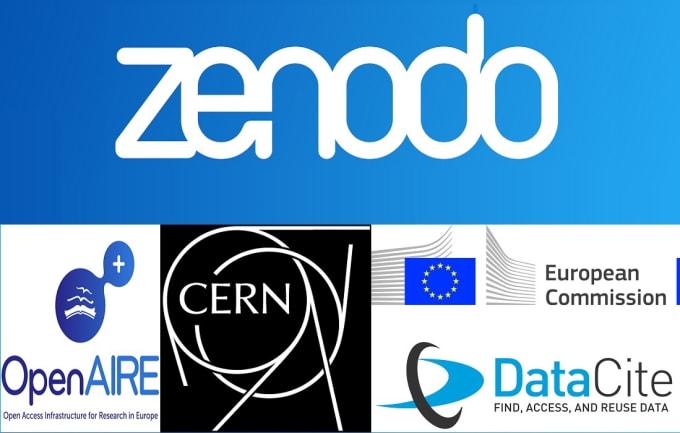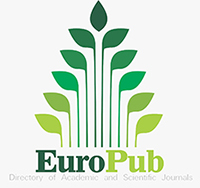Effect of Prognostic Nutritional Index and Inflammatory Markers on Survival in Elderly Patients with Locally Advanced Rectal Cancer
DOI:
https://doi.org/10.5281/zenodo.10018104Keywords:
Radyoterapi, prognostik beslenme indeksi, rektal kanser, enflamatuar belirteçlerAbstract
SOYUT
Amaç: Bu çalışma, tedavi öncesi periferik kanda prognostik nutrisyonel indeks (PNI), nötrofil-lenfosit oranı (NLR), trombosit-lenfosit oranı (PLR) ve lenfosit-monosit (LMR) oranının prognostik değeri ve sağkalım etkilerini değerlendirmeyi amaçladı. lokal ileri rektal kanserli (ELARC) yaşlı (≥70) hasta sayısı.
Gereç ve Yöntem: 2010-2020 yılları arasında ameliyat öncesi veya ameliyat sonrası kemoradyoterapi (KRT) alan 86 ELARC dahil edildi ve tıbbi kayıtları retrospektif olarak incelendi. Tedavi öncesi bir hafta içinde tam kan sayımı ve kan biyokimya sayımları yapıldı. PNI, NLR, LMR ve PLR'yi içeren hematolojik parametreler, uzun vadeli toksisite, tümör evresinin düşürülmesi, pCR (patolojik tam yanıt), OS (genel sağkalım) ve DFS (hastalıksız sağkalım) ile ilişkili olarak analiz edildi.
Bulgular : Tek değişkenli analizde, düşük NLO, düşük PLR ve yüksek PNI değerleri artmış OS ile, yüksek LMR, düşük PLR ve yüksek PNI değerleri ise artmış DFS ile ilişkilendirilmiştir. Çok değişkenli analizde, düşük PLR, yüksek PNI değerleri, erkek cinsiyet ve daha genç yaş, artmış OS'yi öngörmek için bağımsız prognostik faktörlerdi ve yüksek LMR değerleri ve lenf nodu tutulumunun olmaması, artmış DFS için tek bağımsız prognostik faktörler olarak kaldı. PLR değeri düştükçe patolojik tümör yanıtının seviyesi arttı.
Sonuç: PNI ve PLR, ELARC'de OS için önemli bir bağımsız prognostik faktör olarak bulundu. LMR'nin DFS için önemli bir bağımsız prognostik faktör olduğu bulundu. PLR'nin OS ve evre küçültme için önemli bir bağımsız prognostik faktör olduğu da bulundu.
Anahtar kelimeler: Radyoterapi, prognostik beslenme indeksi, rektal kanser, inflamatuar belirteçler
Downloads
References
References
Bray F, Ferlay J, Soerjomataram I (2018) Global cancer statistics 2018: GLOBOCAN estimates of incidence and mortality worldwide for 36 cancers in 185 countries. CA: A Cancer Journal For Clinicians 68(6),394-424
Norwegian Colorectal Cancer Registry, annual report 2015. https://www.kreftregisteret.no/globalassets/cancer-in-norway/2015/cin_2015.pdf, access time: 12.02.2022
Shahir MA, Lemmens VE, van de Poll-Franse LV, Voogd AC, Martijn H, Janssen-Heijnen ML (2016) Elderly patients with rectal cancer have a higher risk of treatment-related complications and a poorer prognosis than younger patients: a population-based study. European Journal of Cancer 42(17):3015–3021
Iseki Y, Shibutani M, Maeda K, Nagahara H, Ohtani H, Sugano K, Ikeya T, Muguruma K, Tanaka H, Toyokawa T, Sakurai K, Hirakawa K (2015) Impact of the preoperative controlling nutritional status (conut) score on the survival after curative surgery for colorectal cancer. PloS one, 10(7)
Tan CS, Read JA, Phan VH, Beale PJ, Peat JK, Clarke SJ (2015) The relationship between nutritional status, inflammatory markers and survival in patients with advanced cancer: a prospective cohort study. Supportive Care in Cancer 23(2):385–391
Onodera T, Goseki N, Kosaki G (1984) Prognostic nutritional index in gastrointestinal surgery of malnourished cancer patients. Nihon Geka Gakkai Zasshi. 85:1001-1005
Bozkaya Y, Köstek O, Sakin A, Özyükseler DT, Şakalar T, Çil İ (2020) Is the prognostic nutritional index a prognostic and predictive factor in metastatic non-small cell lung cancer patients treated with first-line chemotherapy? Supportive Care in Cancer 28(5):2273–2282. https://doi.org/10.1007/s00520-019-05055-x.
Küçükarda A, Erdoğan B, Gökyer A, Sayın S, Gökmen İ, Özcan E, Hacıoğlu MB, Uzunoğlu S, Çiçin İ (2022) Prognostic nutritional ındex and its dynamics after curative treatment are ındependent prognostic factors on survival in non-metastatic nasopharyngeal carcinoma. Supportive Care in Cancer. 30(3):2131-2139
Sun K, Chen S, Xu J, Li G, He Y (2014) The prognostic significance of the prognostic nutritional index in cancer: a systematic review and meta-analysis. Journal of cancer research and clinical oncology. 140(9):1537-1549
Duan YY, Deng J, Su DF, Li WQ, Han Y, Li ZX, Huan XZ, Zhu SH, Yang QL, Hu W, Xin MZ, Tang LQ, Mai H Q, Fan YY, He Y (2021) Construction of a comprehensive nutritional index and comparison of its prognostic performance with the PNI and NRI for survival in older patients with nasopharyngeal carcinoma: a retrospective study. Supportive Care in Cancer 1-11
Noh GT, Han J, Cho MS, Hur H, Min BS, Lee KY, Kim NK (2017) Impact of the prognostic nutritional index on the recovery and long-term oncologic outcome of patients with colorectal cancer. Journal of Cancer Research and Clinical Oncology 143(7):1235-1242
Ucar G, Ergun Y, Acikgoz Y, Uncu D (2020) The prognostic value of the prognostic nutritional index in patients with metastatic colorectal cancer. Asia‐Pacific Journal of Clinical Oncology. 16(5):179-184
Coussens LM, Werb Z (2002) Inflammation and cancer. Nature 420:860–867
Kim IH, Lee JE, Yang JH, Jeong JW, Ro S, Lee MA (2018) Clinical significance of changes in systemic inflammatory markers and carcinoembryonic antigen levels in predicting metastatic colorectal cancer prognosis and chemotherapy response. Asia‐pacific Journal of Clinical Oncology 14(3), 239-246
Ehrsson YT, Hellström PM, Brismar K, Sharp L, Langius-Eklöf A, Laurell G (2010) Explorative study on the predictive value of systematic inflammatory and metabolic markers on weight loss in head and neck cancer patients undergoing radiotherapy. Supportive Care in Cancer 18(11):1385-1391
WuY, Fu X, Zhu X, He X, Zou C, Han Y, Xu M, Huang C, Lu X, Zhao Y (2011) Prognostic role of systemic inflammatory response in renal cell carcinoma: a systematic review and meta-analysis. Journal of Cancer Research and Clinical Oncology 137(5):887-896
Chandrasekara S, Davis S, Thomson P, Haydon A (2018) High neutrophil‐to‐lymphocyte ratio predicts poor prognosis in patients with squamous cell carcinoma of the head and neck treated with definitive chemoradiotherapy. Asia‐pacific Journal of Clinical Oncology. 14(5):442-447
Kao SC, Vardy J, Harvie R, Chatfield M, van Zandwijk, N, Clarke S, Pavlakis N (2013) Health-related quality of life and inflammatory markers in malignant pleural mesothelioma. Supportive Care in Cancer 21(3):697-705
Gunduz S, Mutlu H, Tural D, Yıldız Ö, Uysal M, Coskun HS, Bozcuk H (2015) Platelet to lymphocyte ratio as a new prognostic for patients with metastatic renal cell cancer. Asia‐Pacific Journal of Clinical Oncology 11(4):288-292
Markus M, Abendroth A, Noureddine R, Paul A, Breitenbuecher S, Virchow I, Schmid KW, Markus P, Schumacher B, Wiesweg M, Wendling J, Mende B, Siveke JT, Schuler M, Kasper S (2021) Combined systemic inflammation score (SIS) correlates with prognosis in patients with advanced pancreatic cancer receiving palliative chemotherapy. Journal of Cancer Research and Clinical Oncology 147(2): 579-591
Lin GN, Peng JW, Liu PP, Liu DY, Xiao JJ, Chen XQ (2017) Elevated neutrophil‐to‐lymphocyte ratio predicts poor outcome in patients with advanced non‐small‐cell lung cancer receiving first‐line gefitinib or erlotinib treatment. Asia‐Pacific Journal of Clinical Oncology 13(5):189-194
Lee Y, Kim SH, Han JY, Kim HT, Yun T, Lee JS (2012) Early neutrophil-to-lymphocyte ratio reduction as a surrogate marker of prognosis in never smokers with advanced lung adenocarcinoma receiving gefitinib or standard chemotherapy as first-line therapy. Journal of Cancer Research and Clinical Oncology 138(12):2009-2016
Tominaga T, Nonaka T, Hisanaga M, Fukuda A, Tanoue Y, Yoshimoto T, Hidaka S, Sawai T, Nagayasu T (2020) Prognostic value of the preoperative prognostic nutritional index in oldest-old patients with colorectal cancer. Surgery Today 50(5):449-459
Mohri Y, Inoue Y, Tanaka K, Hiro J, Uchida K, Kusunoki M (2013) Prognostic nutritional index predicts postoperative outcome in colorectal cancer. World Journal of Surgery 37(11):2688-2692
Verheul HM, Hoekman K, Lupu F, Broxterman HJ, van der Valk P, Kakkar AK, Pinedo HM (2000) Platelet and coagulation activation with vascular endothelial growth factor generation in soft tissue sarcomas. Clin Cancer Res 6:166–171
Ikeda M, Furukawa H, Imamura H, Shimizu J, Ishida H, Masutani S, Tatsuta M, Satomi T (2002) Poor prognosis associated with thrombocytosis in patients with gastric cancer. Ann Surg Oncol. 9:287–291
Dubernard V, Arbeille BB, Lemesle MB, Legrand C (1997) Evidence for an alpha-granular pool of the cytoskeletal protein alpha-actinin in human platelets that redistributes with the adhesive glycoprotein thrombospondin-1 during the exocytotic process. Arterioscler Thromb Vasc Biol. 17:2293–2305
Galdiero MR, Bonavita E, Barajon I, Garlanda C, Mantovani A, Jaillon S (2013) Tumor associated macrophages and neutrophils in cancer. Immunobiology 218:1402–1410
Balkwill F, Mantovani A (2001) Inflammation and cancer: back to Virchow? Lancet 357:539–545
Kusumanto YH, Dam WA, Hospers GA, Meijer C, Mulder NH (2003) Platelets and granulocytes, in particular the neutrophils, form important compartments for circulating vascular endothelial growth factor. Angiogenesis 6:283–287
Salazar-Onfray F, López MN, Mendoza-Naranjo A (2007) Paradoxical effects of cytokines in tumor immune surveillance and tumor immune escape. Cytokine Growth Factor Rev. 18:171–182
Bellone G, Turletti A, Artusio E, Mareschi K, Carbone A, Tibaudi D, Robecchi A, Emanuelli G, Rodeck U (1999) Tumor-associated transforming growth factor-beta and interleukin-10 contribute to a systemic Th2 immune phenotype in pancreatic carcinoma patients. The American Journal of Pathology 155(2):537-547
Dunn GP, Old LJ, Schreiber RD (2004) The immunobiology of cancer immunosurveillance and immunoediting. Immunity 21:137–148
Pedrazzani C, Mantovani G, Fernandes E, Bagante F, Luca Salvagno G, Surci N, Campagnaro T, Ruzzenente A, Danese E, Lippi G, Guglielmi A (2017) Assessment of neutrophil-to-lymphocyte ratio, platelet-to-lymphocyte ratio and platelet count as predictors of long-term outcome after R0 resection for colorectal cancer. Sci Rep. 7(1):1494
Chan JC, Chan DL, Diakos CI, Engel A, Pavlakis N, Gill A, Clarke SJ (2017) The lymphocyte-to-monocyteratio is a superior predictor of overall survival in comparison toestablished biomarkers of resectable colorectal cancer. Ann Surg. 265(3):539-546
Park IJ, YouYN, Agarwal A, Skibber JM, Rodriguez-Bigas MA, Eng C, Feig BW, Das P, Krishnan S, Crane CH, Hu CY, Chang G J (2012) Neoadjuvant treatment response as an early response indicator for patients with rectal cancer. J Clin Oncol. 30(15):1770–6
Lee IH, Hwang S, Lee SJ, Kang BW, Baek D, Kim HJ, Park SY, Park JS, Choi GS, Kim JC, Cho SH, Kim JG (2017) Systemic inflammatory response after preoperative chemoradiotherapy can affect oncologic outcomes in locally advanced rectal cancer. Anticancer Research 37(3):1459-1465
Hodek M, Sirák I, Ferko A, Örhalmi J, Hovorková E, Hadži Nikolov D, Paluska P, Kopecký J, Petera J, Vošmik M (2016) Neoadjuvant chemoradiotherapy of rectal carcinoma. Strahlentherapie und Onkologie 192(9):632-640
Downloads
Published
How to Cite
Issue
Section
License
Copyright (c) 2023 Chronicles of Precision Medical Researchers

This work is licensed under a Creative Commons Attribution-NonCommercial-ShareAlike 4.0 International License.





